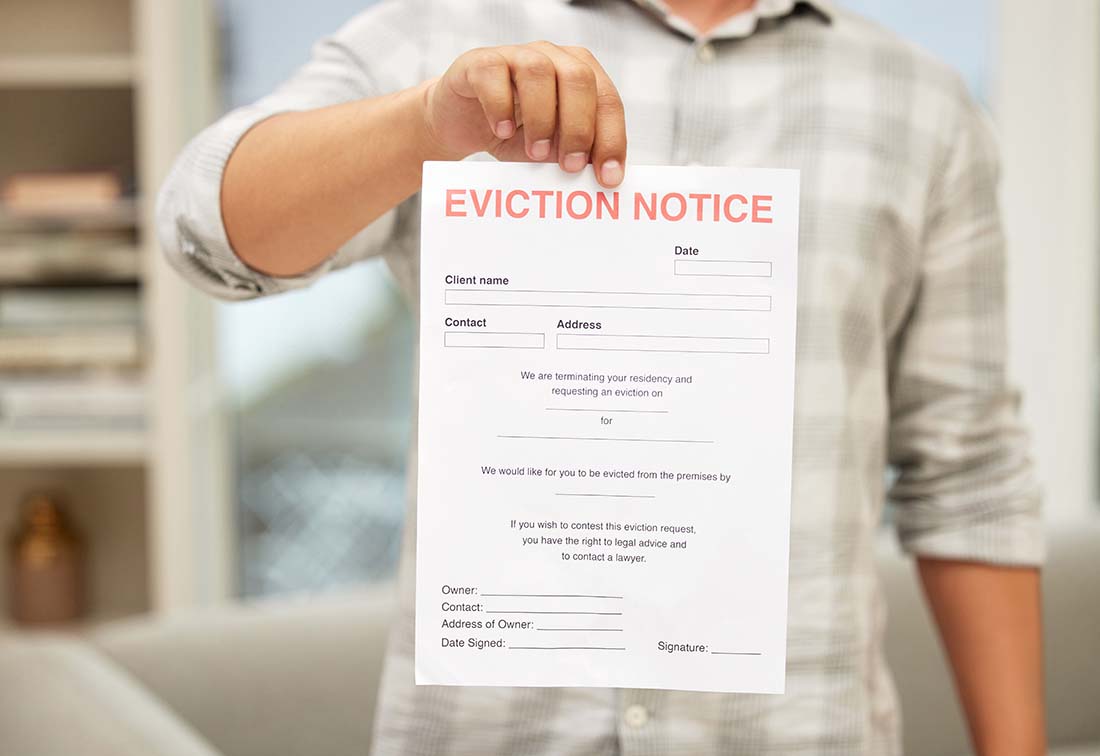
05 Jul Tenant Evictions: What Property Managers Need to Know
Property managers are responsible for managing rental properties on behalf of property owners. They perform various tasks such as advertising vacancies, screening tenants, collecting rent, maintaining the property, and handling tenant complaints.
However, one of the most challenging aspects of property management is dealing with problem tenants. In some cases, eviction may be necessary. But do property management companies have the authority to evict tenants? Let’s take a closer look.
Understanding the Landlord-Tenant Relationship
Before answering whether property managers can evict tenants, we must understand the relationship between landlords and tenants. A landlord owns a property that is rented out to tenants.
The tenant, on the other hand, is the person who rents the property from the landlord. This relationship is governed by a lease agreement, which outlines the terms and conditions of the rental arrangement.
The lease agreement outlines the landlord’s and tenant’s obligations and responsibilities. For example, the landlord is responsible for maintaining the property, while the tenant is responsible for paying rent on time and keeping the property clean and tidy. The lease agreement also sets out the consequences of violating these obligations. In most cases, the consequences include eviction.
Can Property Managers Evict Tenants?
Now that we understand the landlord-tenant relationship let’s turn our attention to property managers. Do they have the authority to evict tenants? The answer is yes and no. Property managers can initiate the eviction process but cannot evict tenants themselves.
The eviction process is a legal process that must be carried out following state and local laws. The property manager can serve the tenant with an eviction notice and file the necessary paperwork with the court. However, only a judge can order the eviction of a tenant.
In most cases, the property owner must also be involved in eviction. The property manager may need to obtain the owner’s permission to start the eviction process, and the owner may need to attend the hearing. This is because the owner is the legal owner of the property and has the ultimate authority over the tenant.
When Can a Tenant Be Evicted?
Eviction is not something that should be taken lightly. It is a serious legal process that can have significant consequences for the tenant and the landlord. To evict a tenant, there must be a valid reason. The most common reasons for eviction include:
- Failure to pay rent: If a tenant fails to pay rent on time, the landlord may be able to evict them.
- Violation of the rental/lease agreement: If a tenant violates the terms of the lease agreement, such as by having unauthorized pets or subletting the property without permission, the landlord may be able to evict them.
- Illegal activity: If a tenant engages in illegal activity on the property, such as drug use or prostitution, the landlord may be able to evict them.
- Damage to the property: If a tenant causes damage to the property, the landlord may be able to evict them.
- End of the lease term: If a tenant’s lease has expired and they have not renewed it, the landlord may be able to evict them.
It is important to note that landlords cannot evict tenants for discriminatory reasons. For example, a landlord cannot evict a tenant because of race, religion, or sexual orientation.
The Eviction Process
The property manager must follow the legal eviction process if a tenant needs to be evicted. The specific process will depend on state and local laws, but generally, it will involve the following steps:
- Serve the tenant with an eviction notice: The property management must serve the tenant with a notice of eviction. This notice will outline the reason for the eviction and the time the tenant has to vacate the property.
- File the necessary paperwork with the court: They must file the necessary paperwork if the tenant does not leave the property after receiving the eviction notice.
- Attend the eviction hearing: Both the property owner and management must appear at the eviction hearing. The judge will weigh the reasons made by both sides throughout the hearing before deciding whether or not to have the tenant removed.
- Obtain a writ of possession: If the judge orders the eviction, the property manager must obtain a writ of possession from the court. This writ gives the sheriff the authority to remove the tenant from the property.
Conclusion
Property management for tenant evictions is a complex and often difficult process. It involves the management of multiple legal obligations, as well as the critical task of ensuring the safety and security of rental property. All in all, property managers must ensure proper steps are taken by the law to protect the interests of the landlord, the tenant, and the community at large.
Properly manage your rental properties with the help of Crestwave Property Management. We are a property management company in Long Beach that has managed buildings for over 30 years. We handle the hard work, so you don’t have to. Get in touch with us today!
